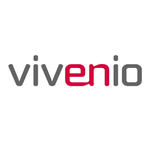Description

Eventflow

Oxford Abstracts
Comprehensive Overview: Eventflow vs Oxford Abstracts
Eventflow and Oxford Abstracts are two distinct platforms designed to address event management and abstract management needs, respectively. Here's a comprehensive overview of each:
Eventflow
a) Primary Functions and Target Markets:
Eventflow is primarily focused on event scheduling and management. It serves as a tool to help event organizers create and manage event timelines, schedules, and agendas. The platform offers features like drag-and-drop scheduling, real-time updates, and customizable templates that cater to the needs of conferences, workshops, and other large-scale events.
- Target Markets: Eventflow primarily targets conference organizers, academic institutions, event planners, corporate events, and trade shows that require detailed and dynamic schedule management.
b) Market Share and User Base:
While Eventflow is a specialized tool, it competes in a niche market alongside other event scheduling solutions. Its user base mainly comprises academic and professional conference organizers who need precise schedule coordination and attendee communication.
c) Key Differentiating Factors:
- User Interface and Design: Eventflow's intuitive design allows users to easily manage complex event schedules using a straightforward, visually appealing interface.
- Real-Time Collaboration: Event organizers can collaborate in real-time, making it easy to adapt schedules on the fly without disrupting attendee engagement.
- Integration Capabilities: Eventflow often focuses on integration with other event management tools and platforms to provide a seamless experience.
Oxford Abstracts
a) Primary Functions and Target Markets:
Oxford Abstracts is geared towards academic and scientific conference organizers, providing a solution for abstract and submission management. It facilitates the entire process of abstract submission, peer review, and content management for conferences and symposiums.
- Target Markets: The primary markets for Oxford Abstracts include academic institutions, research organizations, scientific societies, and conference organizers that require a robust system for managing abstract submissions and peer reviews.
b) Market Share and User Base:
Oxford Abstracts is recognized for its strong foothold in academia and research conferences, where it serves a wide and ever-growing user base. Its market share within the abstract management sector is significant due to its reputation and specialized features that cater specifically to academic conferences.
c) Key Differentiating Factors:
- Comprehensive Review Process: Oxford Abstracts provides a detailed review process with customizable workflows, making it an ideal choice for academic conferences requiring rigorous peer review.
- Abstract Management Tools: The platform offers sophisticated tools for handling large volumes of abstracts, including features for easy sorting, categorization, and reviewer assignment.
- Ease of Use: Designed with the academic user in mind, Oxford Abstracts offers an easy submission process for authors and an efficient review system for reviewers and conference organizers.
Comparison and Differentiation
-
Target Functionality: Eventflow focuses on event scheduling, whereas Oxford Abstracts specializes in abstract submission and review management.
-
User Base: Eventflow attracts event professionals needing dynamic scheduling, while Oxford Abstracts is favored among academic institutions and researchers for its robust abstract management capabilities.
-
Market Share: Oxford Abstracts tends to have a larger share in its niche due to its specialization in abstract management, while Eventflow competes broadly within the event management realm.
-
Integration vs. Specialization: Eventflow integrates with other event tools to enhance scheduling capabilities, while Oxford Abstracts provides specialized features tailored specifically for managing academic abstracts and peer reviews.
In summary, both Eventflow and Oxford Abstracts serve distinct but sometimes overlapping needs in the event management landscape. Their focus and features tailor them to meet the specific requirements of their respective target markets.
Contact Info

Year founded :
Not Available
Not Available
Not Available
Australia
http://www.linkedin.com/company/eventflow-app

Year founded :
Not Available
Not Available
Not Available
Not Available
Not Available
Feature Similarity Breakdown: Eventflow, Oxford Abstracts
To provide a detailed feature similarity breakdown for Eventflow and Oxford Abstracts, let's explore their core features, user interface comparisons, and any unique features each may have.
a) Core Features in Common
1. Event Management:
- Both platforms offer comprehensive tools for organizing and managing events. This includes scheduling, venue management, and resource allocation.
2. Abstract Submission and Review:
- Both Eventflow and Oxford Abstracts support the submission and review process for academic papers or abstracts. They typically include features for submission management, peer review, and tracking.
3. Registration Management:
- These platforms include tools to handle attendee registration, with options for ticketing, payment processing, and attendee data management.
4. Communication Tools:
- Both offer communication features such as email notifications, reminders, and updates to keep attendees informed.
5. Reporting and Analytics:
- Eventflow and Oxford Abstracts typically provide reporting and analytics tools to help organizers evaluate event success and gather insights from attendee data.
b) User Interface Comparison
Eventflow:
- Design: Known for its user-friendly and intuitive design, Eventflow typically offers a sleek and modern interface. The navigation is straightforward, which enhances the user experience for both event organizers and participants.
- Customization: While generally streamlined, Eventflow provides some customization options that let users tailor the interface to fit specific event requirements.
Oxford Abstracts:
- Design: The platform often features a more academic-focused design, which might feel robust and functional. It is particularly geared towards conferences and scholarly events.
- Usability: Although functional, the interface might seem more utilitarian compared to Eventflow. It is effective for handling specialized tasks like abstract management but may require a slight learning curve for first-time users.
c) Unique Features
Eventflow:
- Advanced Scheduling Capabilities: Eventflow often includes advanced scheduling tools that allow complex management of multiple event tracks and simultaneous sessions.
- Interactive Components: Depending on the version, Eventflow may integrate interactive features such as virtual booths, live chat, and polls to enhance attendee engagement.
Oxford Abstracts:
- Specialized for Academic Conferences: A unique strength is its focus on academic and research conferences. This specialization means the platform is adept at handling large volumes of abstract submissions and peer reviews efficiently.
- Networking Tools: Oxford Abstracts sometimes includes unique networking features designed for academic communities, facilitating connections between researchers and attendees.
Both platforms serve well in the event management space, each with strengths tailored to different types of events and user preferences. The choice between them would largely depend on the specific needs of the event organizers and the type of event being managed.
Features

Not Available

Not Available
Best Fit Use Cases: Eventflow, Oxford Abstracts
Eventflow and Oxford Abstracts are both event management and planning tools, but they cater to different needs and offer distinct features suited for various use cases. Here's a breakdown of their best-fit use cases:
Eventflow
a) Best Fit for Businesses or Projects:
-
Complex Event Structures: Eventflow excels in managing events with complex scheduling needs. If your event has multiple tracks, sessions, or overlapping activities, Eventflow provides the tools to visualize and manage these intricacies effectively.
-
Tech-Driven Companies or Startups: As a platform often focused on providing an intuitive and technologically advanced experience, it's a great fit for tech companies or startups that are familiar with event-based project management and need detailed, dynamic scheduling capabilities.
-
Internal Corporate Events: It is well-suited for internal meetings, workshops, or company retreats where the primary audience is the company staff and coordination complexities are high.
d) Industry Verticals and Company Sizes:
-
Technology and R&D: Industries that frequently host hackathons, tech-fairs, or innovation labs benefit from Eventflow's scheduling and management capabilities.
-
Mid to Large Enterprises: Its robust feature set supports larger organizations with extensive event requirements, needing coordination across multiple departments or teams.
Oxford Abstracts
b) Preferred Scenarios:
-
Academic and Research Conferences: Oxford Abstracts is specifically designed to handle abstract management, making it ideal for academic conferences where collecting, reviewing, and managing paper or research submissions is critical.
-
Workshops and Symposia: This tool is excellent for organizing events with a strong focus on content delivery and participant interaction, like workshops that require detailed speaker and session management.
d) Industry Verticals and Company Sizes:
-
Education and Academia: Universities, research institutions, and academic bodies that organize conferences and need a platform to manage abstracts and peer reviews find Oxford Abstracts invaluable.
-
Scientific Organizations: Organizations focused on scientific advancement or research dissemination use this tool due to its specialized features for handling detailed abstracts and speaker sessions.
-
Small to Mid-Sized Academic Bodies or Conference Organizers: Even smaller organizations or departments at universities benefit from Oxford Abstracts due to its specific focus and cost-effective solutions for managing complex academic events.
In summary, Eventflow is best for businesses needing advanced scheduling and coordination, especially in tech-driven environments, whereas Oxford Abstracts is optimal for academic and research-based events focused on abstract submissions and detailed content management. Their alignment with different industries or company sizes is reflective of these functionalities and the level of complexity they are designed to handle.
Pricing

Pricing Not Available

Pricing Not Available
Metrics History
Metrics History
Comparing undefined across companies
Conclusion & Final Verdict: Eventflow vs Oxford Abstracts
To provide a comprehensive conclusion and final verdict for Eventflow and Oxford Abstracts, we'll consider various factors including pricing, features, usability, and customer support.
a) Considering all factors, which product offers the best overall value?
It depends on the specific needs and priorities of the user. If a user is looking for a more affordable and specialized tool geared towards abstract management, and possibly values a straightforward interface, Oxford Abstracts might provide the best overall value. However, if the need is for a more comprehensive event management tool with robust scheduling features, Eventflow might offer better value despite a potentially higher cost.
b) Pros and Cons of Each Product:
Eventflow
Pros:
- Comprehensive features for event planning including scheduling, registration, and attendee management.
- Strong visual tools for itinerary creation and session management.
- Offers integration with various third-party applications, enhancing functionality and ease of use.
Cons:
- Might have a steeper learning curve due to the abundance of features.
- Pricing could be higher compared to more niche solutions, depending on the package and features selected.
Oxford Abstracts
Pros:
- Specializes in abstract management, providing tailored tools for conferences focused on research presentations.
- Typically simpler and more straightforward to use, with a focus on the essential elements of abstract review and management.
- Pricing is generally more competitive for organizations specifically needing abstract management.
Cons:
- Lacks the breadth of event management features found in more comprehensive platforms like Eventflow.
- May require integration with other tools if broader event management features are necessary, incurring additional cost and complexity.
c) Recommendations for Users Deciding Between Eventflow vs Oxford Abstracts:
-
Identify Primary Needs: Users should assess their primary needs. If the focus is predominantly on conferences with a heavy emphasis on abstract submission and review, Oxford Abstracts could be ideal. For users needing full-scale event management including logistics and attendee engagement, Eventflow would be better suited.
-
Budget Considerations: Evaluate budget constraints. Users with tighter budgets who only need abstract management may find Oxford Abstracts more appealing financially. If budget allows for a more integrated tool suite, and broader features are beneficial, Eventflow might represent good value.
-
Future Scalability: Consider future growth and scalability. Users expecting to scale their events in size and complexity might benefit from investing in Eventflow for its extensive features and flexibility.
-
Demo and Trial: Both platforms often offer demos or trial periods. Taking advantage of these can provide personal insight into which tool aligns better with the user’s workflow and needs.
In conclusion, the decision between Eventflow and Oxford Abstracts should be based on the specific needs and circumstances of the user or organization. Understanding the scope and goals of the events being managed will guide the best choice for maximizing value and effectiveness.
Add to compare
Add similar companies



